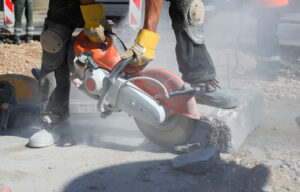Carpet can take on a lot of dirt and grime. Regular vacuuming, paired with a cleaning solution to break down dirt particles, can help your carpet stay cleaner longer.

Using doormats and taking shoes off when entering your home will help reduce the amount of dirt that gets tracked into your carpet. Stains should be dealt with immediately to reduce the chance of permanent color change. Call Carpet Cleaning Lehi for professional help.
When it comes to cleaning, steam is a versatile tool that can be used to sanitize and degrease many different types of flooring and surfaces. The high heat generated by a steam cleaner loosens dirt and grime, which then can be easily wiped away without the need for harsh chemicals. Steam cleaning is especially good at removing stains that have become ground into carpet fibers by repeated rubbing, vacuuming, or scraping.
Steam is also effective at eliminating odors and disinfecting surfaces. The high temperatures reached during the steaming process kill bacteria, mold spores, dust mites, and pollen particles. This can help to reduce allergies in people who suffer from them.
Another advantage of steam cleaning is that it can be used in conjunction with other cleaning methods, such as hot water extraction or carpet shampooing, to produce even better results. Steam cleaners can be rented from home improvement stores and can be quite powerful if you’re looking for professional-grade equipment. However, you should avoid using steam cleaners on delicate or antique fabrics, which could be damaged by the moisture.
For commercial cleaning services, a steam vapor machine can quickly refresh and sanitize floors, walls, and ceilings. In addition, these machines can be used to clean upholstery and other soft fabrics. It is important to note that steamers should never be used on unsealed or poorly sealed hardwood floors, and they cannot be used on marble, terrazzo, or granite surfaces because the moisture can cause them to swell or break.
Once you invest in a steam cleaner, you’ll find that your cleaning product list shrinks. Gone will be the days of deciding which one of the dozen or more cleaning products to purchase at the grocery store. You’ll be able to keep your family chemical-free, reducing the risk of respiratory and other health problems. You’ll also save money by not having to buy the expensive floor polishers, glass cleaners, and oven cleaners that tend to build up on store shelves.
Hot Water Extraction
Hot water extraction (HWE) is a method that uses high-temperature H2O to clean carpets. It is a highly effective cleaning method, particularly for heavily-soiled or stubborn stains. This technique combines the power of hot water and cleaning detergents with robust vacuuming to thoroughly clean carpet fibres and remove embedded dirt, grime and allergens.
A machine heats the water to a temperature that is neither too hot nor too cold, then mixes in the cleaning solution. The hot water and cleaning mixture is then injected into carpet fibres at high pressure, dislodging any dirt and grime that has been trapped inside for some time. At the same time, a powerful vacuum sucks up the dirty solution and the loosened debris, leaving your carpets fresh and clean.
Another advantage of this method is that it doesn’t leave your carpets soggy like the steam cleaning technique can. In fact, you can walk on your carpets immediately after the service. This method also doesn’t rely on the use of any harsh chemicals, making it safer for children and pets who often spend a lot of time on your carpets.
When performed by a trained professional, this cleaning method is one of the most effective ways to restore your carpets and get them looking their best again. It’s a great option for revitalizing your old, worn-out carpet and can be used on most types of natural-fiber carpets and area rugs.
It’s important to note that this process is different from the steam cleaning technique, which uses water heated to boiling temperatures in order to create steam. This is a more effective way of cleaning your carpets, but it’s also prone to over-wetting that can lead to the formation of non-removable water stains and mould growth.
With Steve’s hot water extraction method you’ll never have to worry about these issues. Our skilled and experienced technicians are always careful to use only the right amount of liquid to keep your carpets in a healthy, aesthetically pleasing condition. The best part is that with this method your carpets will be dry in about six to twelve hours after the treatment.
Dry Cleaning
Dry cleaning is a process that uses chemicals rather than water to clean fabric. Historically, those chemicals were gasoline, kerosene, turpentine, and oil; however, they are flammable and have been phased out in favor of synthetic, nonflammable solvents such as perchloroethylene (PERC or PCE) and decamethylcyclopentasiloxane (GreenEarth). This method is environmentally friendly, but it still exposes workers to dangerous solvents. It is a good alternative to wet cleaning, but does not remove all stains.
A newer, safer solvent is liquid carbon dioxide (LCD). This option does not require any new equipment and is completely safe for workers.
Shampooing
Carpet is a popular and comfortable flooring option for homes, but its soft surface can trap dirt, dust, and dander that contribute to unhealthy indoor environments. Routine care and cleaning practices can help extend the life of your carpets. Vacuuming frequently, enforcing a “no shoes in the house” policy, and professional cleaning services can minimize the effects of wear and tear.
Shampooing your carpets is a great way to get them clean and fresh again without the expensive price tag of professional cleaning. To shampoo your carpets, start by vacuuming them thoroughly to remove as much dirt and debris as possible. Then, prepare your cleaning solution, choosing from vinegar and water, dish soap and warm water, or baking soda. Apply your cleaning solution to the carpet, scrub the floor with a brush or sponge, and then rinse with water and blot dry. It’s important to get all the soap out of your carpet because leftover detergent can attract and bind new dirt and make the carpet even dirtier.
Aside from removing deep-seated dirt, carpet shampoos can also deodorize your carpet and freshen the overall room. Mix together equal parts salt, borax, and vinegar to create a thick paste, and then spread it over the carpet to lift dirt, stains, and odors. You can use this method as a spot cleaner, or apply it to the entire carpet. Be sure to wear gloves throughout the process, as borax is a common skin irritant.
Another option for a DIY carpet shampoo is to simply add a little liquid dish soap or laundry detergent to warm water and then use a brush or sponge to scrub the floor. Be sure to test the cleaning solution on a small area of your carpet to make sure it won’t discolor the fibers. Remember to blot the carpet dry afterward to prevent moisture that can cause mildew and mold.
For severe stains and odors, it may be necessary to contact a professional cleaning service that offers specialized pet odor and stain removal treatments. Keeping your carpets clean and healthy with regular cleanings and by implementing protective measures like area rugs and carpet protectors can help keep them looking and smelling their best.
